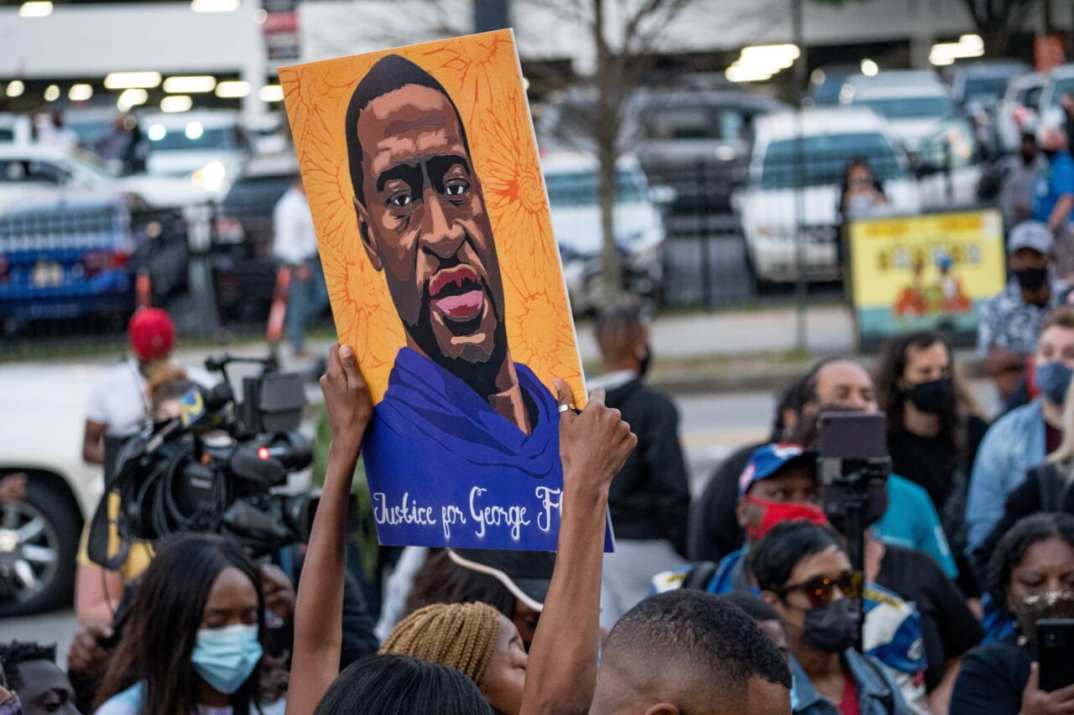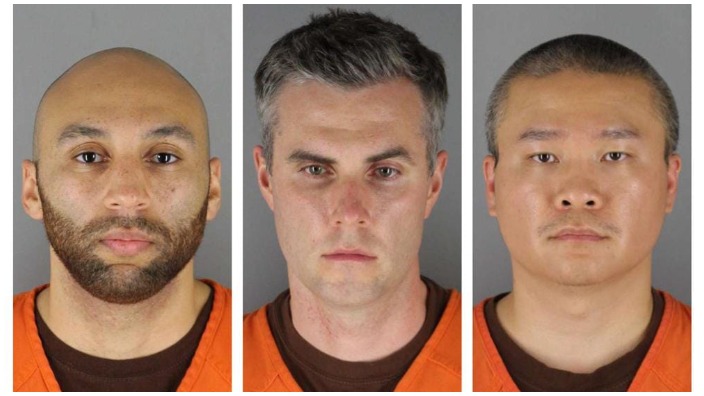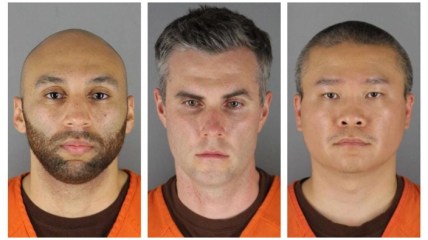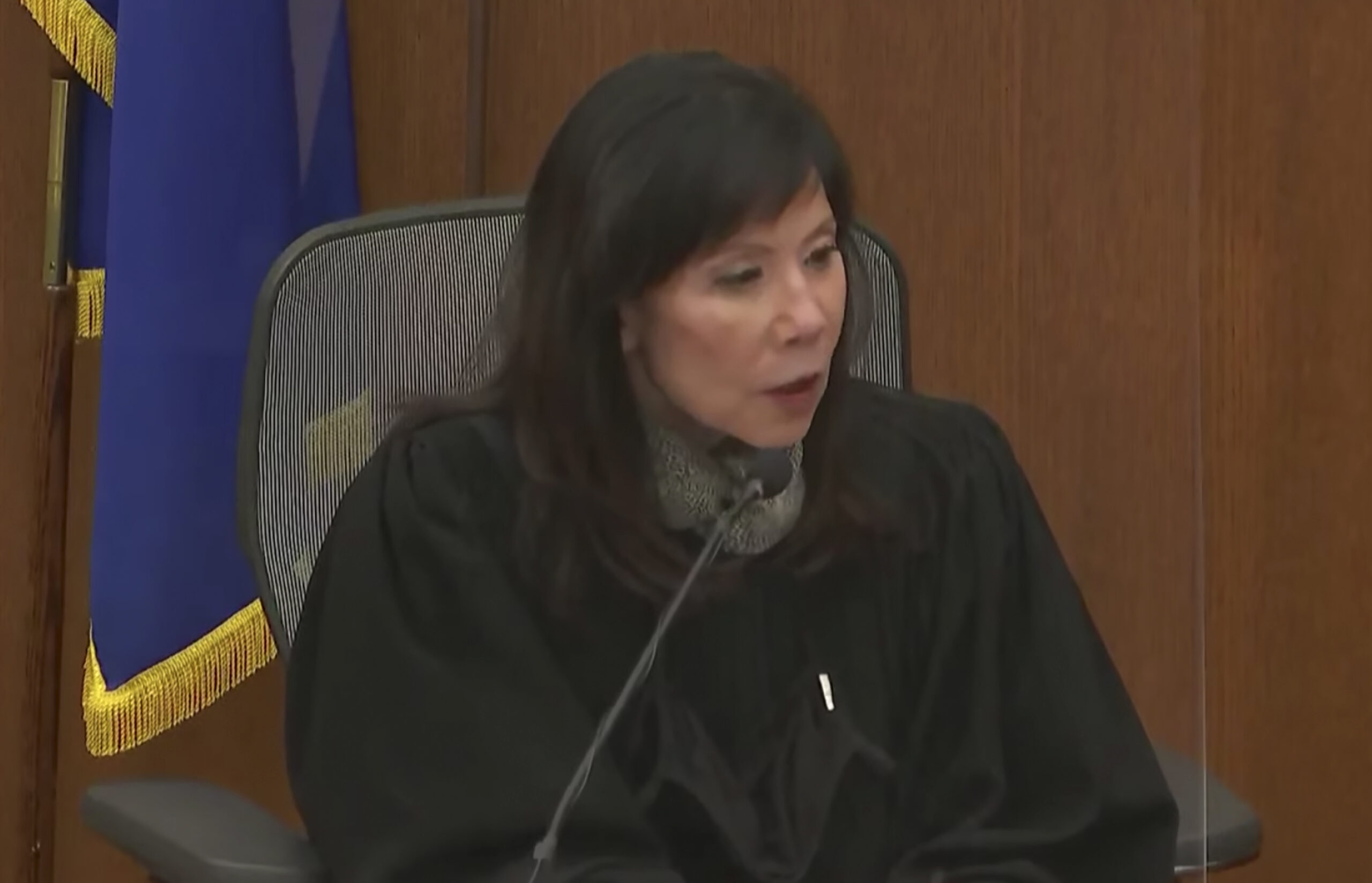Verdict for the 3 officers involved in George Floyd’s death delivers accountability—and a sense of hope
The verdict demonstrates that police officers cannot hide behind the blue line all the time, and their silence in times of injustice will find them complicit with the actions of the oppressor.

If you are neutral in situations of injustice, you have chosen the side of the oppressor.
— Desmond Tutu
On May 25, 2020, three trained officers—Tou Thao, 36; Thomas Lane, 38; and J. Alexander Kueng, 28—said nothing, did nothing while Derek Chauvin pressed his knee on George Floyd’s neck as he laid prostrate on the street in a nonresponsive state. Bystanders could see something was not right. They begged and pleaded for one of the officers to do something, to help a man whose life was fading right before their eyes. On Thursday, Feb. 24, 12 jurors found the three former officers guilty.
Silence in the face of injustice is complicity with the oppressor
— Ginetta Sagan
For 9 minutes and 29 seconds, these three officers did not have the courage to live up to the Minneapolis Police Department’s motto, which is “to protect with courage, to serve with compassion.” Thao found it was more important to keep the bystanders at bay while Lane pressed down on Floyd’s legs and Kueng was on his back. The three officers failed to protect Floyd with courage by failing to intervene and threw compassion by the wayside as Floyd yelled more than 20 times that he could not breathe—but they held him down as he expelled his last breath.
The trial of the three former officers focused heavily on the training they received and the duty to intervene. Thao was a veteran officer and Chauvin’s partner—but the main argument by the defense was that Chauvin was the senior officer, and as a result, all three officers on the scene deferred to him. Because of the appalling events and actions that led to Floyd’s premature death, the three ex-officers were charged with depriving Floyd of his civil rights while acting under the “color of law” or government authority by failing to provide medical attention. Thao and Kueng were additionally charged with failing to intervene to stop Chauvin from using excessive force.

To meet their burden, prosecutors had to prove that the three former officers knew their actions were wrong, but they did it anyway. The prosecutors did not have an easy task before them. They needed to demonstrate that the ex-officers acted under government authority and willfully deprived Floyd of his constitutional right to be free from unreasonable seizure. This is a high burden to prove as they cannot simply present that the officers acted in a negligent manner.
The prosecutors proceeded with this heavy burden and performed well. Although both Keung and Thomas relied on being rookie officers, the prosecution strategically brought out the fact that because they were rookies and fresh out of the academy, their training on the use of force and intervening should have been top of mind, and they should have acted.
On the other hand, the defense argued that “a tragedy is not a crime.” Like the state trial of Chauvin, the defense stuck to scare tactics—Floyd appeared to be on drugs; he was acting erratically; it was believed he attempted to use a counterfeit $20 bill. The overwhelming theme of the defense was to play the blame game—Chauvin was the senior officer, and the other officers trusted his actions. During the month-long trial, it was revealed that the only officer who attempted to have Chauvin change Floyd’s position and who later performed CPR was Lane.
The 12 jurors made up of eight women and four men found the three ex-officers guilty on all charges. Under federal sentencing guidelines, because the officers’ actions resulted in Floyd’s death, it is possible (though highly unlikely) that the officers could be sentenced up to life in prison or given the death penalty. It is more likely that the prosecutors will recommend 25 years.
“This is just accountability. It can never be justice because I can never get George back,” Floyd’s brother, Philonise Floyd, said after the verdict.
We must continue to advocate and push for increased police accountability. The conviction of the three officers demonstrates that no one is above the law. Yet, there are unrelenting hurdles such as qualified immunity and other laws that favor officers and ultimately impede true accountability.
As a result of Floyd’s killing, many states passed laws that include police training to intervene when witnessing misconduct by a fellow officer. On the federal level, the George Floyd Act seeks to remedy these barriers that obstruct true accountability and transparency. Yet, Congress failed to pass it when a bipartisan deal collapsed in September 2021. However, the jury’s verdict brings a sense of hope. It demonstrates that police officers cannot hide behind the blue line all the time, and their silence in times of injustice will find them complicit with the actions of the oppressor.
The ultimate tragedy is not the oppression and cruelty by the bad people but the silence over that by the good people
— Martin Luther King

Stephanie is an Attorney and Policy Strategist focusing on reforming the Criminal Legal System. Stephanie was an anchor on the Law and Crime Network and has provided legal analysis for Fox News.
TheGrio is FREE on your TV via Apple TV, Amazon Fire, Roku, and Android TV. Please download theGrio mobile apps today!


